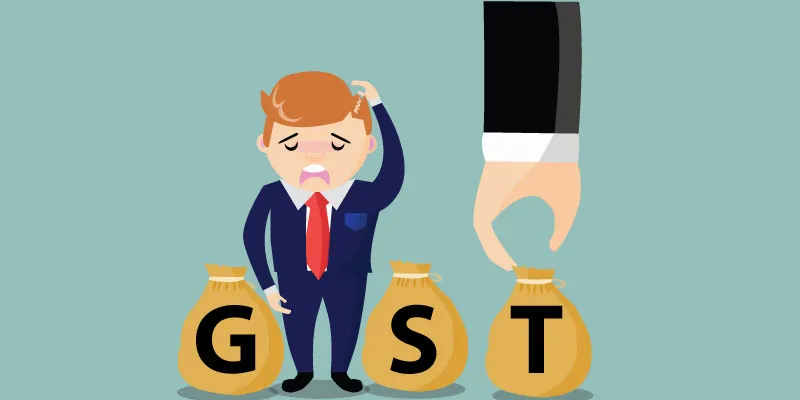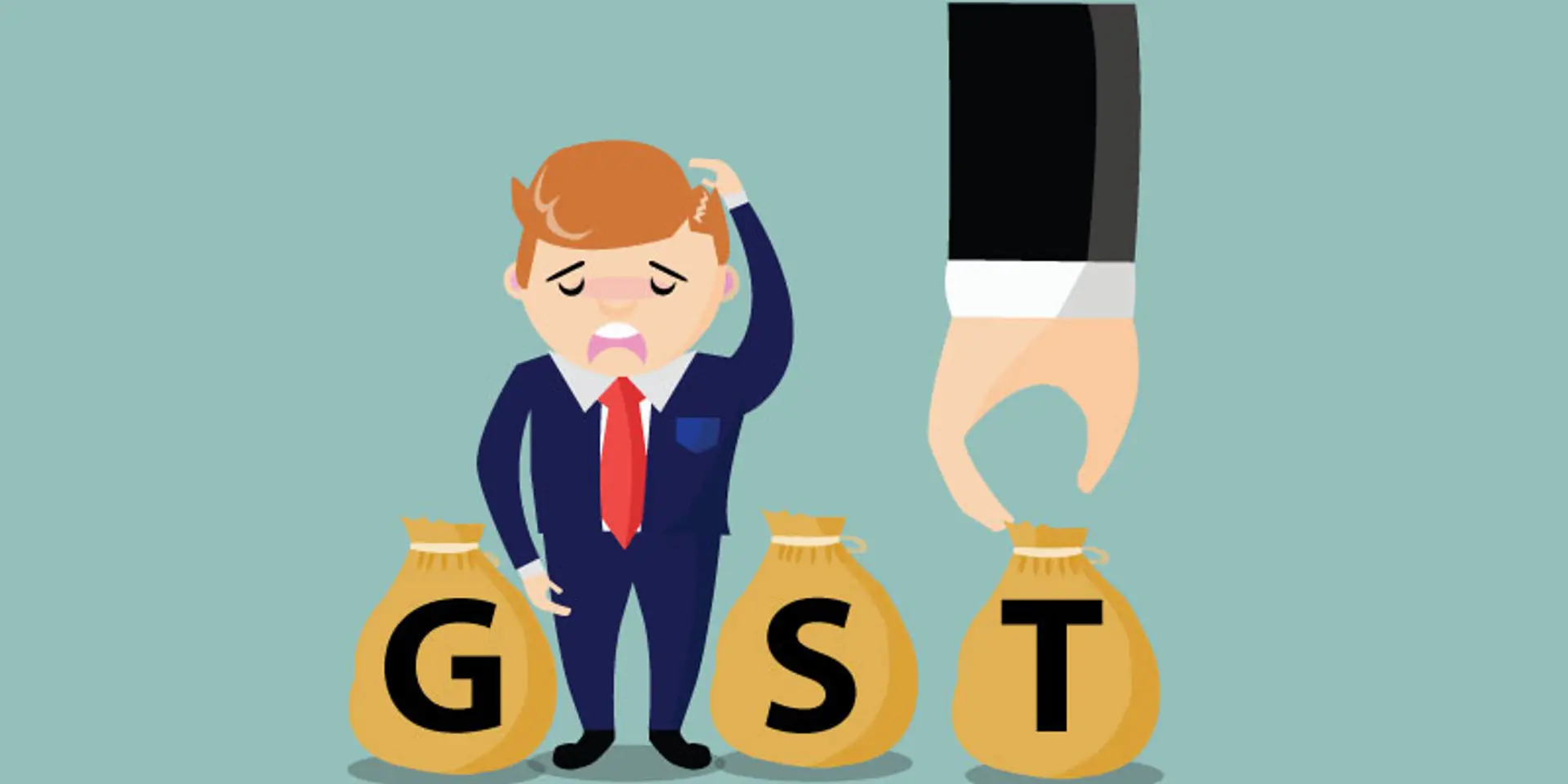GST switchover: Lack of clarity leads to confusion for consumers
A lot of confusion and pain has marked the switchover to the Goods and Service Tax (GST) from July 1, thanks to the marketing gimmicks and lack of clarity
The Goods and Service Tax (GST) was supposed to make 81 percent of the goods cheaper as per Centre’s claims. But consumers are belatedly realising that it has robbed them of benefits and even misled them into taking decisions that they only now regret.
Though the government has stepped in and warned those who mislead customers, a large number of people YourStory spoke to were still confused and unable to fully make sense of the new tax regime.

Car buyers have come in for the biggest shock. Car dealers keen to clear out stocks lured buyers with large pre-GST discounts. But post-GST, car prices have on their own slumped between Rs 4,000 (average Maruti Alto model) to Rs 92,500 (Toyota Carolla Altis) and by a whopping Rs 3 lakh in case of high-end SUVs such as Ford Endeavour.
While June and July are when consumer goods and branded wear showrooms offer the customary 30-40 percent discounts in various forms, it was largely found that these glitzy showrooms were trying to push out old stock by offering more discounts this year.
Priya GS, whose husband bought a pair of sports shoes from a leading store on Bengaluru’s Brigade Road, said it offered a flat 50 percent off on all footwear but included GST at 18 percent after the discounted price.
She said,
The bill displayed a nine percent SGST and nine percent CGST that is GST levied separately by the state and the Centre. I am not sure if shoes attract 18 percent GST and if they are cheaper now. When I asked, they confused me. So, essentially the discount percentage remains the same and they are taking advantage of GST in many ways.
Public-sector telephone service provider BSNL too has asked subscribers to pay their bills 10 days earlier this month “due to GST”.
Also read: A comprehensive guide to GST and items that fall under its purview
An aggrieved subscriber said: “Landline and mobile bills for the month arrive by the end of the first week and the last date to pay is the 26th of the month. This cycle has been changed as BSNL sent me a message claiming that due to GST, the June bill was calculated only till June 28 and it needed to be paid by July 12. As I have subscribed to my bank’s auto debit service, all my registered bills are paid automatically from my account and the BSNL bills are paid by the 21st of every month. Now, I get at least three messages and calls a day to clear my dues. If I pay the bill, then I will end up paying the current bill twice as it is due for an automatic debit later this month.”
Supermarkets in urban areas are also reporting long queues at bill counters as most are yet to change their billing system to accommodate GST. “All bill counters display a computer printout stating billing is slow due to GST and that patrons should cooperate,” says an exasperated Vani Jayaram who had to wait at the counter for more than half an hour.
MA Cariappa, a store manager for a supermarket chain, explained that billing is taking longer as they are in the process of upgrading thousands of products at the backend.
Cariappa said,
My problem is complex. For example, for every toothpaste tube that a customer buys, there is a unique code generated that has the product name, size, and price. Now, when stocks arrived post-July 1, the new price of the tube is cheaper but till the existing stock is cleared, we have to sell it at the earlier price. That’s simple enough. But our problem is that the unique code cannot register two prices for the same product in the billing software. Now think of thousands of such products. It multiplies that many times. This is the reason our billing system has slowed.
Another customer said she could not buy a litre of curd as the billing clerk told her she could not process barcoded items as the system was being upgraded.
Cariappa also clarified that a social media message doing the rounds, which claims that the more one shops at supermarkets, the more the chances of the customer getting into the next GST slab, was not true. “GST is levied on each product and not on the total value of the bill. That is the reason customers are getting longer bills post-GST.”
Online pharmacies have created an artificial shortage of medicines. They have been putting out SMSs to their patrons from May alerting them to a looming shortage of medicines “due to GST” and advising them to place orders in advance.
Delhi resident PP Malhotra (78) said Medlife cancelled his monthly order with a curt SMS advice to buy the medicines elsewhere despite having confirming three times that they would be delivered in the first week of July.
“They gave me unnecessary palpitations as I had to rush to the nearest pharmacy where I found that there was absolutely no such shortage," he says.
"I want the government to take action against such offenders as consumers are powerless. My wife and I are both diabetic and hypertensive and dependent on such online pharmacies not just for the 20 percent discount they offer but simply because they deliver at our doorstep. I can only say that they have lost the trust of thousands of customers like me,” adds a livid Malhotra.
Also read: How does GST work? Demystifying the mother of all taxes
The commercial department of the railways worked continuously for three days through the first weekend of July to be GST-compliant.
“Railways levy service tax only on passengers travelling in AC coaches. Previously, AC passengers were levied 4.5 percent service tax and now it fell into the five percent GST slab. We formed teams to visit booking centres to prepare ticketing staff as well as made sure our travelling ticket examiners were charging passengers correctly whenever passengers upgraded to AC classes while in running trains. Luckily, this time though there has been an increase, TTEs were not authorised to collect any difference in fares for those who had booked earlier and saved both passengers and staff from further confusion. The new fares were added for those who booked from July 1,” said Karthik Heggadekatti, a railway deputy commercial manager.
But, the Bengaluru Metropolitan Transport Corporation (BMTC) missed the bus, literally. It used to charge six percent service tax which has now been reduced to five percent.
“Even on July 3, we were charged six percent and only after formal complaints, it was reduced to five percent,” says Pravir B, a regular.
Pravir was also wondering about the GST panel’s decision to levy zero percent service tax on intra-city travel to encourage public transport. “The panel has not differentiated between AC and non-AC travel. Only BMTC AC bus passengers are charged five percent—though metro rail passengers enjoy AC comfort, they have been exempted,” he laments.
BMTC was not aware that the GST panel had recommended zero percent tax for intra-city travel and promised YourStory that it would study the matter and revert.
“We will surely pass on the benefit to commuters if that is the case,” said an official, looking as baffled as the daily commuter.







